John Janaro's Blog, page 5
July 27, 2025
It's Grandparents' Day!
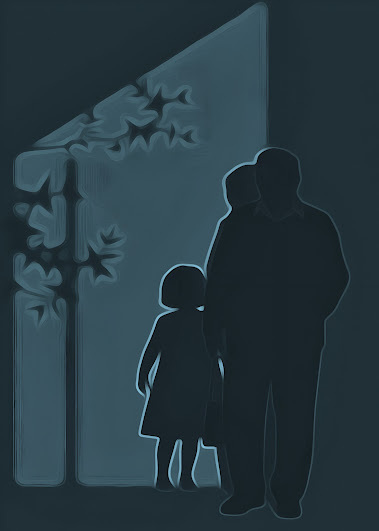 "Today we celebrate the Fifth World Day for Grandparents and the Elderly, centered on the theme: 'Blessed are those who have not lost hope.' Let us look to grandparents and the elderly as witnesses of hope, capable of showing the path for new generations. Let us not leave them alone, but instead, form a bond of love and prayer with them" (Pope Leo XIV).
"Today we celebrate the Fifth World Day for Grandparents and the Elderly, centered on the theme: 'Blessed are those who have not lost hope.' Let us look to grandparents and the elderly as witnesses of hope, capable of showing the path for new generations. Let us not leave them alone, but instead, form a bond of love and prayer with them" (Pope Leo XIV).Witnesses of hope. Sometimes we don’t feel that way, but hope is not just a feeling. We have traveled for years, for decades, on the road of perseverance even if our journey is not yet completed. We have had many lessons about who deserves our trust. Indeed, by God’s infinite mercy, we are witnesses of hope. Yet we continue the journey, dear young people, and we want to walk with you. We can help one another.
We know the limited character of earthly success; we have also failed many times; we know how crushing the burden of failure feels; we have lived a whole lot of life with joy and also affliction and endurance. Through it all we "have not lost hope."
This is not because we are "good at hoping" or have adopted an ideology of optimism. Rather we have found again and again that we are being drawn and carried by Another, who gives us being and life, who shapes our path toward fulfillment. We belong to this Other, not because we deserve or earn this belonging. Rather He has grabbed hold of our lives because He loves us, and in everything He stirs up in our hearts the awareness and capacity to trust in Him.
Sometimes the "lonely" have more inner strength and resilience than you might think. It's because they know they belong to Christ, and they hope in Him. But loneliness can be very hard.
It's beautiful for young people and the elderly to "form a bond of love and prayer" between them. We have been entrusted to one another and we need one another.
I am grateful for the faces of my precious grandchildren. I am grateful that I can spend so much time with them.

July 26, 2025
Is JJ a "Digital Missionary" or "Catholic Influencer"?
The end of July marks a "Jubilee event" in Rome for "Digital Missionaries and Catholic Influencers" — people who use the Internet and social media to witness to the Gospel, reaching out to all the spaces on the "Digital Continent."
Do I "fit in" here?

There are lots of young people who have taken up this task consciously and enthusiastically. They identify with these terms, and they produce polished, high quality audiovisual content. I have come to "know" some of them (through online communication) and I appreciate the value of what they do. Especially during the Pandemic, they provided "spaces" for connection, often live streaming events for music and prayer that brought quarantined people all over the world "together." Those times were precious, surprising experiences of our closeness within Christ's Mystical Body, even when separated by vast distances.
These young people know the roads of the Internet. They know how to use the tech. They're "new media" savvy. But "blogs" are included...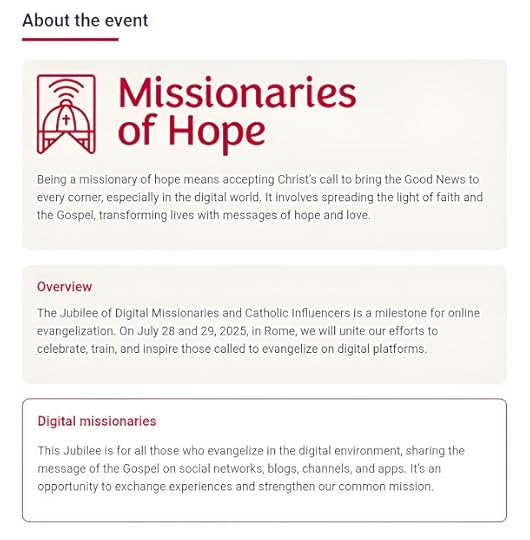
I am a blogger, I guess. But what am I really doing? I'm a University Professor, long "pre-maturely retired" due to debilitating illnesses which I have described many times on this blog. I'm a writer, who sort of accidentally stumbled upon blogging in 2011. Sometimes my blog is my "creative workshop" for material that I'm thinking about or working on (including experiments in photographic and pictorial art). Sometimes my blog is like a little "classroom" in which I seek to do something that resembles "teaching." Not many people read it.
Am I "influencing" anybody?
I'm not a "native" of the Digital Continent. I'm more like a "refugee," who came here after nearly fifty years, because I had nowhere else to go. I have seen the great possibilities for communication, and made use of them as best as I can. I have tried to make a "place" here, rather than taking up a conscious project. A place where I can "be," and open up myself - my mind and my heart - to others who might find me in this place. Here I am: long-winded, awkward, sometimes troubled, writing about life in these particular times or sharing worthwhile resources... and the attempts at art (for what they're worth).
And of course, I witness to Jesus Christ. I witness to my hope in Him. What is life without Him? Yes, I want to communicate "messages of hope and love," the hope and love that I need for my own broken, sinful life - I know that the truth is here, and that others need it too. We are all human. We are all created by God, redeemed by Jesus, called to be brothers and sisters.
This is a "digital platform" and I am putting myself "out here" as I am, with my struggles and my hope. I am a witness to hope and love. I have hope, because I have been loved.
I'm not good at "interacting" with media. I have the habits of a writer - habits that are leftover from "the Gutenberg Galaxy." But I'm on the Internet and I'm trying to reach people, even if it's just a few people.
I'm a Catholic Christian human person who has been sharing his life on this blog for forteen years. I can't help sharing about Jesus. He is the life of my life.
I suppose this makes me a "Digital Missionary."July 25, 2025
Saint James the Apostle
July 25: Happy Feast of Saint James, first martyr among the Apostles!
"King Herod laid hands upon some members of the church to harm them. He had James, the brother of John, killed by the sword" (Acts 12:2).
"We who live are constantly being given up to death for the sake of Jesus, so that the life of Jesus may be manifested in our mortal flesh" (2 Corinthians 4:11).
Jesus said, "Whoever wishes to be great among youshall be your servant;whoever wishes to be first among you shall be your slave.Just so, the Son of Man did not come to be servedbut to serve and to give his life as a ransom for many" (Matthew 20:28).
July 24, 2025
With My Every Breath, You Are Near...
God gives us everything. Right now, we exist because He is giving us the very reality of ourselves.
His love gives me each breath that I take. Even if all I have is that breath, it is a wondrous thing. I want to be grateful for every breath, even the laborious ones, even the breaths that I feel like I'd rather not take.
Lord, even when I don't feel grateful, even when I feel angry or frustratedor humiliated or empty,
or when I think I don't want to live anymore,
give me gratitude for the wonder of you,
in whose image I am made,
you who alone know the secret of who I am.
Enable me, whatever the awful darkness,
to be grateful,
to hold on to your mercy and goodness and love,
or when it seems like I can't even reach out to you,
to allow you to hold onto me
and carry me in this black night.
I'm blind and torn and fighting
and I feel like running away because it's all so strange.
Don't let go, Lord. Don't let me be alone.
You love me even when I don't remember you,
can't see you, can't feel you,
can't imagine how hope could be possible in life,
how there could be anything other than the pain
and more pain and more pain...
Even when I am far from you and losing myself,
you are near.
With my every breath,
with every stirring of my frame
and movement of my soul,
you are near.
God, find me!
God, find me!
July 20, 2025
The Pope Calls Buzz Aldrin on Moon Landing Anniversary
I’m geeking out!
On July 20, 1969, Bob Prevost was a 13-year-old kid in Chicago. I was a 6-year-old kid in New York. We both did the same thing on that evening: we watched on our televisions as Neil Armstrong and Buzz Aldrin became the first and second human beings to set foot on the surface of the Moon.
There were two unprecedented events on that day. One was the first moon landing. The other was the first global live television broadcast. The first was an amazing achievement that — whatever complex motives drove the space race — was a moment of wonder for kids like us, not only in the U.S.A. but all over the world. The second was a “giant leap” for audiovisual communications media that in some way allowed us all to “participate” in this event.
In 2025 Pope Leo video-called the 95-year-old Aldrin, the only surviving Apollo 11 astronaut. Leo posted, “together we shared the memory of a historic feat.” It is a memory that I also share, a pivotal childhood memory of an event that “involved me” through broadcast TV. Indeed, it was an event that pointed to the mystery of Creation.
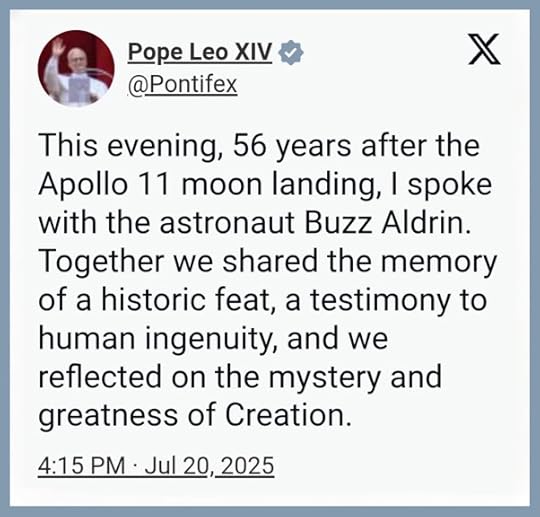
July 17, 2025
Have I Become a Mediocre Old Man?
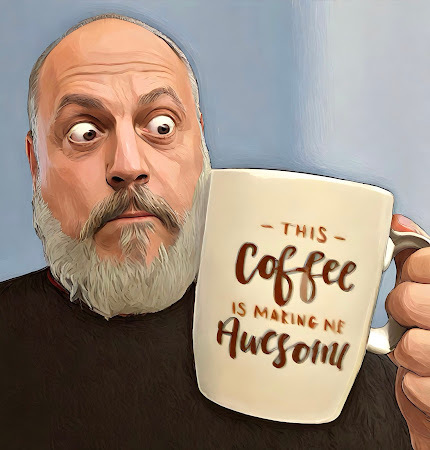 When I look at myself after six-decades-and-two-and-a-half years of life, it's hard to avoid the crushing sense that I have become a mediocre old man. Forty years ago, I had dreams of greatness, and I have accomplished a few things in this world, but in pursuing these ambitions I have continually crashed into the limits of myself.
When I look at myself after six-decades-and-two-and-a-half years of life, it's hard to avoid the crushing sense that I have become a mediocre old man. Forty years ago, I had dreams of greatness, and I have accomplished a few things in this world, but in pursuing these ambitions I have continually crashed into the limits of myself. I have seen how deep my own selfishness and stupidity can be, and yet I have also tried to love! But my love has been small and inadequate. I have been afraid of the great risks, I have stayed in "the safe lane," I have lived more in fear than in love, and when I invested my love, I always hedged my bets.
This is a depressing reckoning, but I think many people my age are wrestling with this kind of perception of themselves. It would indeed be crushing if I thought it was the last word on my life, if I thought it defined my value as a human being.
But there is something else that is more important than my broken ego, or my inability to "justify myself."
The grace and the calling and the beauty of God have been so abundantly showered upon me in my life. And God’s love has "broken through" the limits of my mediocrity.
When I remember His love, I am astonished, humbled, and grateful. Ultimately, I am not defeated by disappointment. Rather, I am overcome by gratitude. I know that if I have accomplished anything truly well, if I have ever truly given myself in love (in a way that goes beyond the impenetrable murky mess of my own life and the efforts of my own feeble power), it is because of the action of this grace in my soul.
Grace and mercy.
What of all the failures of the past? I bring the whole mess of it to the Lord, with repentance and sorrow. I abandon the past and the future to God, who in His mercy will turn all of it to the good, if only I trust in Him and love Him, now, today.
My love will still (mostly) be tinged with selfishness, but the miracle is the wonder, the fascination, the recognition and response to God that He begins to engender within my poor love by His healing and transforming grace.
The real story of my life is the mysterious story of what His grace and mercy are accomplishing in me as I beg for His presence, as I seek to adhere to Him and trust in Him and let myself be embraced by Him who has become flesh. Jesus Christ.
I am truly sorry for all my years of selfishness, of holding back, of distancing myself, of chasing the vanity of ambitions that lead only to cynicism and bitterness. I "firmly resolve" to "do penance and amend my life," but this is not another self-affirming project. I know that I am poor. I must listen more and let myself be loved by Him. My hope is not in any power that I can give to myself.
My hope is in Him. My hope is in Jesus Christ. By His grace, I hope to adhere to Him whose redeeming love is greater than my weakness, who has loved me from the beginning, who never gives up on me.
July 15, 2025
The Wellspring of Life or The Conformism of Power?
 "God revealed the person’s destiny by revealing himself; he made known the name of human destiny through his presence; he intervened in order to remind us that he is the destiny of each one, the unum capable of making our life more human. And history is the long story of the reshaping of human pride, which tends to make its own image of its destiny, which tends to base the constitutive factors of its physiognomy on its total autonomy."
"God revealed the person’s destiny by revealing himself; he made known the name of human destiny through his presence; he intervened in order to remind us that he is the destiny of each one, the unum capable of making our life more human. And history is the long story of the reshaping of human pride, which tends to make its own image of its destiny, which tends to base the constitutive factors of its physiognomy on its total autonomy."Human pride has asserted itself as the measure of meaning and the autonomous fabricator of the self, of the value of things, of relationships, of destiny. But "when God is eliminated as the wellspring and the law of life, reality becomes incomprehensible, elusive, precisely at the point which should be the center of awareness: the I. And so, with such confusion, the only energy that allows the natural propensity of people to come together and communicate seems to be that which is guaranteed by power, in its double modes of conformism and instrumentalization."
~Luigi Giussani
July 14, 2025
Kateri: The “Lily of the Mohawks”
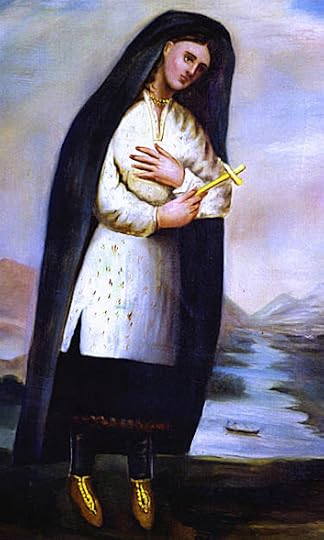 The story of Saint Kateri Tekakwitha, the "Lily of the Mohawks,” is dear to people of every heritage, but especially to Catholic Native Americans. Her brief life and luminous soul were a response to the Gospel being brought to the American northeast, and were formed by the witness of both the European missionaries and the baptized Native Americans who had come to know and love Christ before her.
The story of Saint Kateri Tekakwitha, the "Lily of the Mohawks,” is dear to people of every heritage, but especially to Catholic Native Americans. Her brief life and luminous soul were a response to the Gospel being brought to the American northeast, and were formed by the witness of both the European missionaries and the baptized Native Americans who had come to know and love Christ before her.Tekakwitha was born in 1656 in the Mohawk village of Ossernenon in present-day northern New York State. Her father was a high-ranking Mohawk chief, but her mother was Algonquin, a captive taken in a recent war, who had been catechized and baptized by French Jesuits. No one knows what mysterious communication took place between mother and daughter during the first four years of Tekakwitha's life. But it was through her own mother that Jesus first looked upon Tekakwitha with love.
Her parents died in a ravaging smallpox epidemic in 1660, and she was adopted by her uncle. Although she was scarred and partially blinded by the disease, Tekakwitha leamed to embroider and sew and carry out the tasks expected of a girl of high rank, and in due time her adoptive family sought to arrange a worthy marriage for her. But the young girl spurned all their efforts. They did not understand that she had already been touched and called by her true Spouse. The seed planted by her mother was growing in the secret depths of her soul.
A generation before Tekakwitha's birth, Jesuit missionaries were martyred by the Mohawks. But their blood would bear fruit. The missions continued in the region and the faith began to take root among the surrounding peoples. Following a treaty with the French, missionaries had begun to make converts among the Mohawks as well, and Tekakwitha no doubt heard the new Christians speak about the Creator who sent his Son into the world. She heard them sing Christian hymns in her native tongue. She embraced all that she learned in this way, and knew that it was God himself whom she truly loved. Thus, beginning with her mother, Jesus drew the heart of Tekakwitha to himself through the witness of her own people.
Nevertheless, she was a chief's daughter living a guarded and secluded life. But when Father Jacques de Lamberville came as missionary to her village, Tekakwitha was longing and praying to be able to meet him. It is not surprising that, one spring day in 1675, as he passed by what he thought was an empty dwelling, he felt called to enter. He was surprised to encounter this modest eighteen-year-old girl who opened her heart to him and told him of her burning desire to become a Christian. The next year she was baptized Catherine (Kateri in Mohawk).
She soon went to live in a village of converts called Kahnawake, near Montreal. Here she learned about the vocation to consecrated life. In 1679, Kateri Tekakwitha openly expressed her decision to take Jesus as her Spouse. She died the next year, the first Native American consecrated virgin, with the fire of her love having made a profound impact on her fellow converts and on the missionaries who knew her. That impact continues to grow even to this day.
July 11, 2025
Saint Benedict’s “Atmosphere of Prayer”
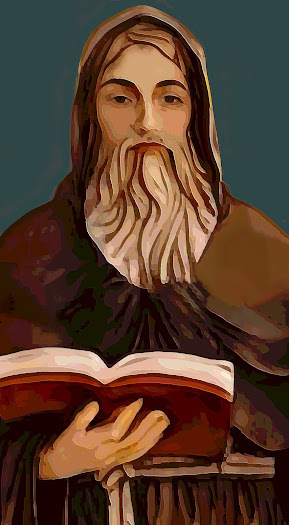 Here is Pope Benedict (of very happy memory) preaching about Saint Benedict, the 6th century “father of Western monasticism,” whose current feast day in the Roman rite is July 11:"Saint Benedict's life was steeped in an atmosphere of prayer, the foundation of his existence. Without prayer there is no experience of God. Yet Benedict's spirituality was not an interiority removed from reality. In the anxiety and confusion of his day, he lived under God's gaze and in this very way never lost sight of the duties of daily life and of man with his practical needs... In contrast with a facile and egocentric self-fulfillment, today often exalted, the first and indispensable commitment of a disciple of Saint Benedict is the sincere search for God on the path mapped out by the humble and obedient Christ, whose love he must put before all else, and in this way, in the service of the other, he becomes a man of service and peace" (Pope Benedict XVI, Homily on Saint Benedict, 2008).
Here is Pope Benedict (of very happy memory) preaching about Saint Benedict, the 6th century “father of Western monasticism,” whose current feast day in the Roman rite is July 11:"Saint Benedict's life was steeped in an atmosphere of prayer, the foundation of his existence. Without prayer there is no experience of God. Yet Benedict's spirituality was not an interiority removed from reality. In the anxiety and confusion of his day, he lived under God's gaze and in this very way never lost sight of the duties of daily life and of man with his practical needs... In contrast with a facile and egocentric self-fulfillment, today often exalted, the first and indispensable commitment of a disciple of Saint Benedict is the sincere search for God on the path mapped out by the humble and obedient Christ, whose love he must put before all else, and in this way, in the service of the other, he becomes a man of service and peace" (Pope Benedict XVI, Homily on Saint Benedict, 2008).
July 9, 2025
Celebrating the Catholic Martyrs of China
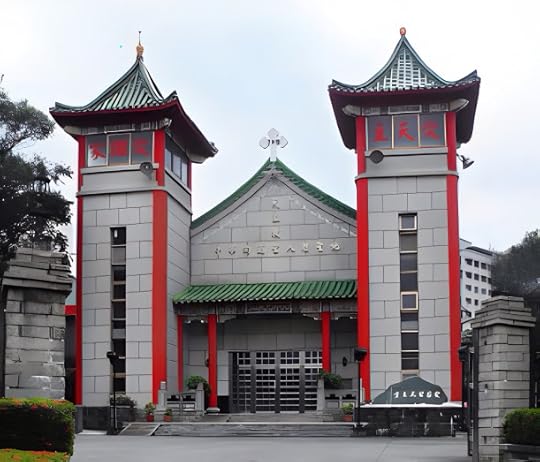 Pictured: Shrine of the 120 Martyrs in Taiwan.
Pictured: Shrine of the 120 Martyrs in Taiwan.The memorial of “Saint Augustine Zhao Rong and Companions, Martyrs” on July 9th celebrates 120 men and women (33 European missionaries and 87 Chinese) whose witness spans the entire period from 1648 to 1930, and who were martyred in different parts of China at different times under diverse local and/or imperial persecutions.
Although Augustine Zhao Rong is named explicitly at the head of this feast day, not many details are known about his life. The essential facts, however, are clear: Zhao was an adult convert to Christ, who became a Catholic priest in central and western China in the late 18th century. He exercised a remarkable and courageous ministry among his people. In 1815, under the persecution of Emperor Jiaqing, he became the first native Chinese priest to die for Christ.
Various accounts converge in their affirmation of one or more of these central points in Zhao Rong’s life. They provide different (possibly complementary) details regarding the circumstances of his conversion, and the persons who were instrumental in bringing him to a decisive encounter with Jesus. Zhao was a soldier in Sichuan in central China whose official duties led him to meet French missionaries of the Paris Foreign Missions Society. According to some accounts, he first met the priest (and later bishop) Saint Jean Gabriel Taurin Dufresse, who was arrested in Chengdu (capital of Sichuan). Zhao was part of the guard that accompanied the prisoner from Chengdu to Beijing – a long and difficult journey. The prisoner was extremely ill-treated the whole way, but he may also have been able to converse with his guards. In any case, we are told that Zhao was struck by Dufresse’s patience with his persecutors, and decided to become a Christian himself. It’s not clear when these events took place, as Dufresse was often imprisoned and transported under guard during his many years in China.
Other accounts attribute Zhao’s conversion to the ministry of another missionary of the Paris Foreign Mission Society, Blessed Jean-Martin Moye (who was not one of the 120 martyrs). In 1774, Moye was arrested in neighboring Guizhou province, subjected to torture and interrogation, and kept in the magistrate’s jail, where Zhao was one of his guards. Here, too, Moye was not prevented from speaking about his faith. Zhao was impressed not only by his courage but also by the reasonableness of his discourse. After Moye was released, Zhao followed him as a catechumen. According to these accounts, Moye baptized him on August 28, 1776, giving him the Christian name of Augustine in honor of that saint’s feast. Moye continued to guide this remarkable young man, eventually recommending him as a candidate for the priesthood.
This latter account seems to have more specific documentation, but perhaps Zhao was prepared to respond to Moye’s witness because he had already seen the holiness and patience of Dufresse. In any case, there is little doubt that he knew both of these missionaries who had come from far away and given themselves totally to the service of the Chinese people, learning their language, caring for them, enduring and forgiving their persecutors whose accusations against them were groundless: all to share with them the good news of the salvation of God through Jesus Christ in His Church. It was this kind of patient, attentive missionary witness that planted and cultivated the Catholic Church in China hundreds of years ago. Though small, the Church has persisted to this day, enduring even greater persecutions, which will eventually bear even more abundant fruit.




